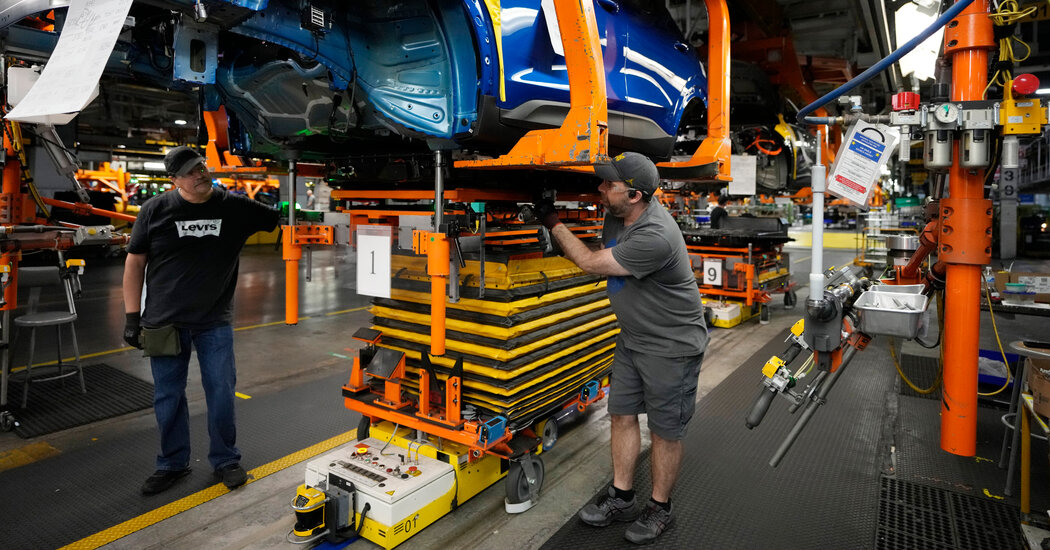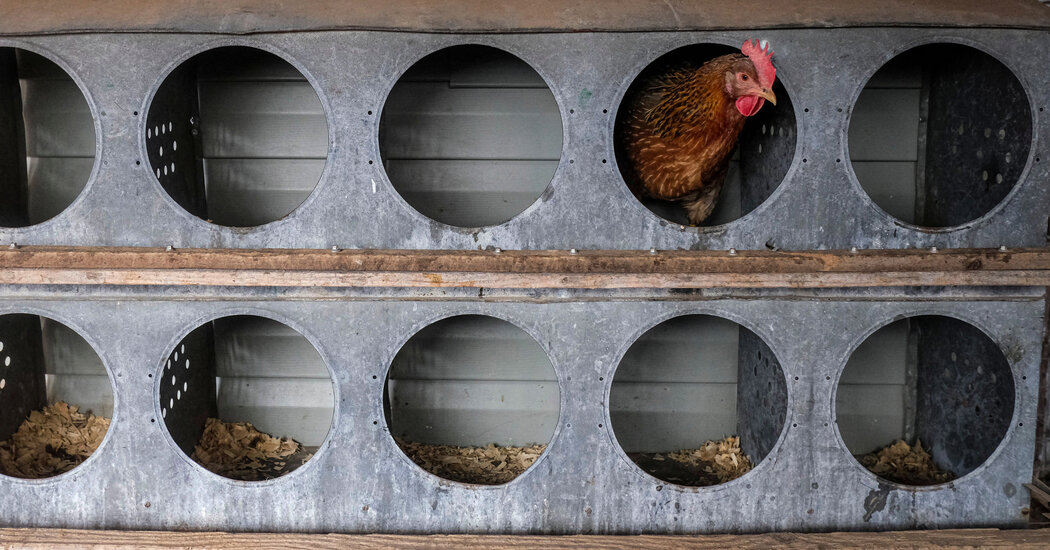The Energy Department announced on Thursday that it had made $2 billion in grants and $10 billion in loans available to auto companies to convert existing factories that build gas-powered cars and trucks into plants that produce hybrid and electric vehicles.
The money, provided under the 2022 Inflation Reduction Act, is aimed at maintaining jobs in communities that have been defined by the auto industry and is also seen as an effort by the White House to respond to a strike threat by unionized autoworkers.
The United Auto Workers has expressed concern over President Biden’s efforts to ramp up manufacturing of electric vehicles, which require fewer workers to build than gas-powered cars and trucks. And auto companies are locating many of the new electric vehicle factories in states without unionized labor.
The U.A.W., which endorsed Mr. Biden in 2020, has so far declined to support his bid for re-election. Last week, the union said that 97 percent of its members had voted to authorize strikes against General Motors, Ford Motor and Stellantis if the union and companies were unable to negotiate new labor contracts.
The announcement on Thursday appeared intended to assuage the concerns of both the automakers and the labor union. In a statement, Mr. Biden said, “Under Bidenomics, building a clean energy economy can and should provide a win‑win opportunity for auto companies and unionized workers who have anchored the American economy for decades.”
The funding would “further that goal by creating auto manufacturing jobs here at home and helping companies avoid painful plant closings — and to retool, reboot, and rehire in the same factories and communities with high wages,” he said.
Former President Donald J. Trump, who is the leading candidate for the Republican presidential nomination, has seized on autoworkers’ unease about the switch to electric vehicles in an effort to court the U.A.W.
In addition to the $12 billion to retool existing plants, the administration also announced that, by the end of the year, it would make $3.5 billion in grants available to expand the manufacturing of electric vehicle batteries and battery components. That money was provided under a 2021 infrastructure law.
Analysts said that the infusion of such a large amount of cash might help settle labor tensions.
“Twelve billion is a lot of money,” said Patrick Anderson, president of Anderson Economic Group in East Lansing, Mich. “The timing is clearly related to the negotiations. The Biden administration clearly wanted to go further to subsidize these E.V. plants with the implicit promise that these will remain union jobs.”
Still, the money comes with risks, Mr. Anderson said. It remains to be seen whether American drivers want to buy electric vehicles on the scale envisioned by the Biden administration, he said.
Shawn Fain, the president of the U.A.W., praised the Biden administration for the influx of federal dollars.
“We are glad to see the Biden Administration doing its part to reject the false choice between a good job and a green job,” Mr. Fain said in a statement. “This new policy makes clear to employers that the E.V. transition must include strong union partnerships with the high pay and safety standards that generations of U.A.W. members have fought for and won.”
But, he added: “The automakers have not yet promised job security in our ongoing negotiations. I have traveled across the country, meeting displaced workers who’ve had to pick up and move their families when plants shut down recently in Belvidere, Ill., Lordstown, Ohio, and Romeo, Mich.”
The Alliance for Automotive Innovation, the lobbying group that represents car companies, also praised the new money. Brian Weiss, a spokesman for the group, said in a statement that the federal dollars would build on significant investments in electric vehicles that car manufacturers have already made.
As part of his climate agenda, Mr. Biden is combining federal investments with an aggressive new regulatory proposal to try to ensure that two-thirds of all new cars sold in the United States are all-electric by 2032, up from about 7 percent today. Transportation is responsible for about one-third of the greenhouse gases generated by the United States, pollution that is dangerously heating the planet.
Both the union and the Alliance for Automotive Innovation, the auto industry’s largest lobbying group, have criticized the proposed regulation, with the carmakers saying it would lead to soaring costs for companies and consumers.











